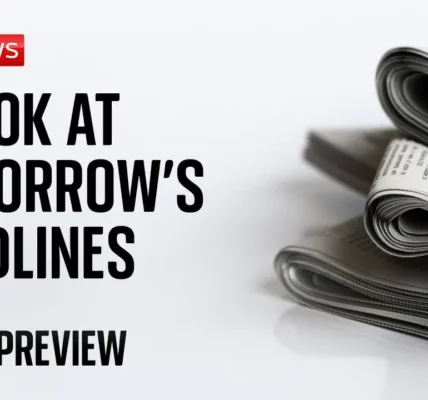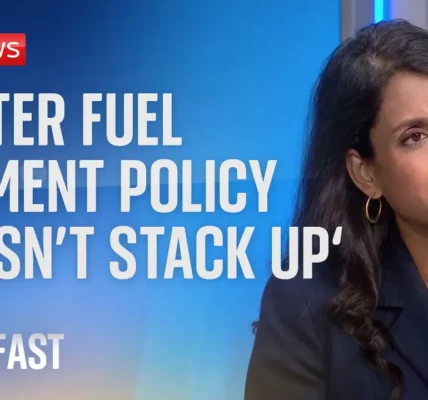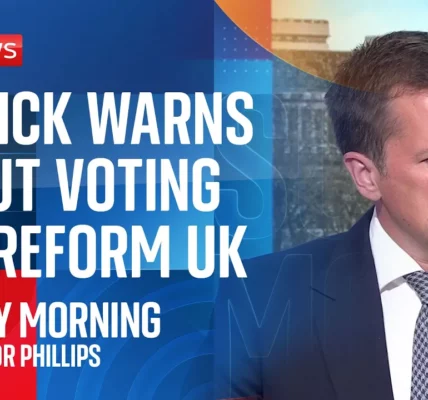Political Debate Analysis: Sunak vs Starmer

This article provides a comprehensive overview of the recent political debate featuring Rishi Sunak and Keir Starmer, highlighting key moments and public reactions that shape the landscape of the forthcoming election.
Introduction
The recent political debate between Rishi Sunak and Keir Starmer was a significant event in the lead-up to the UK general election. With the Conservative Party trailing in the polls, this debate was crucial for both candidates to assert their positions and sway potential voters. The dynamics of the debate, characterized by interruptions and heated exchanges, raised concerns about the effectiveness of such formats in conveying substantive policy discussions. This article delves into the various aspects of the debate, including public perceptions, media reactions, and the implications for both parties moving forward.
Key Moments from the Debate
The debate was marked by several key moments that captured the attention of viewers and political commentators alike.
Rishi Sunak’s Performance
Rishi Sunak aimed to project confidence and authority during the debate. However, his approach was met with mixed reactions:
- Sunak frequently interrupted both Keir Starmer and the moderator, Julie Etchingham, which some viewers found off-putting.
- He attempted to highlight Labour’s alleged tax rises, particularly a claim regarding a £2,000 increase, but struggled to substantiate it effectively.
- Despite his aggressive style, many felt he did not deliver significant blows to Starmer’s arguments, leading to perceptions of desperation.
Keir Starmer’s Strategy
Keir Starmer’s approach was more restrained, aiming to avoid mistakes rather than aggressively countering Sunak:
- Starmer seemed hesitant to challenge Sunak’s claims directly, which may have weakened his position.
- His focus on not making errors resulted in a lack of assertiveness, disappointing some supporters who expected a more vigorous debate.
- Starmer’s responses were characterized by a defensive posture, indicating he was more concerned about maintaining his standing than attacking Sunak’s claims.
Public and Media Reactions
The immediate aftermath of the debate saw varied reactions from the public and media outlets, reflecting the polarized views on both candidates.
Media Headlines
Different newspapers framed the debate in contrasting ways, highlighting specific moments that resonated with their audiences:
- The Daily Mail dubbed Sunak’s performance as “fiery,” suggesting he made significant points against Starmer.
- The Metro focused on the “shaky start” for Farage, who faced an unsettling moment during his campaign launch.
- The Guardian criticized the overall tone of the debate, labeling it as “ill-tempered” and questioning the effectiveness of such confrontations.
Public Sentiment
Snap polls following the debate indicated a slight edge for Sunak over Starmer, which was seen as a small victory for the beleaguered Conservative Party:
- Many viewers expressed frustration over the format of the debate, citing interruptions and lack of depth in discussions.
- Concerns were raised regarding whether the debate format effectively conveyed the candidates’ policies and visions for the country.
Implications for the Upcoming Election
The debate’s impact on the upcoming election is significant, especially given the current polling landscape:
Conservative Party Challenges
The Conservative Party faces a steep uphill battle as they grapple with low approval ratings:
- Farage’s entry into the race poses a new challenge, potentially siphoning off votes from the Conservatives.
- With the party trailing by 20-25 points in opinion polls, every debate moment and media portrayal becomes crucial.
Labour Party Strategy
Starmer’s Labour Party has the opportunity to capitalize on the Conservatives’ disarray:
- Voter sentiment appears to be shifting, with increasing calls for a clear, detailed manifesto from Labour.
- The effectiveness of Labour’s strategy will hinge on Starmer’s ability to challenge Sunak’s claims more forcefully in future debates.
Conclusion
The recent political debate between Rishi Sunak and Keir Starmer highlighted the contentious atmosphere leading up to the general election. As both parties navigate the complex political landscape, the effectiveness of their communication strategies will be pivotal. The Conservative Party, facing significant challenges, must rally around a cohesive message, while Labour must leverage its current momentum to appeal to undecided voters. As we look forward to the next political engagements, it is essential for voters to critically evaluate the candidates’ positions and proposals. For more insights on UK politics, explore our related articles on the impact of media coverage in elections and strategies for effective political communication.
“`




